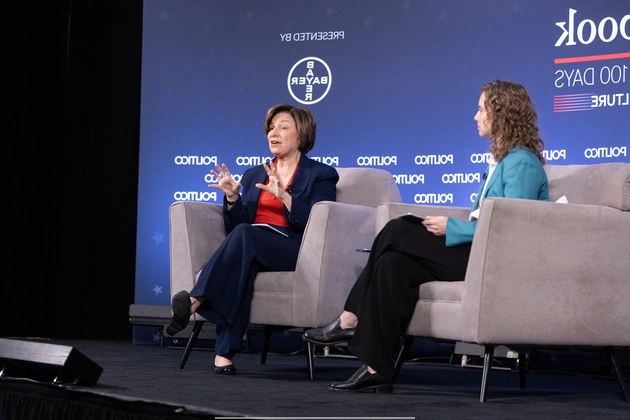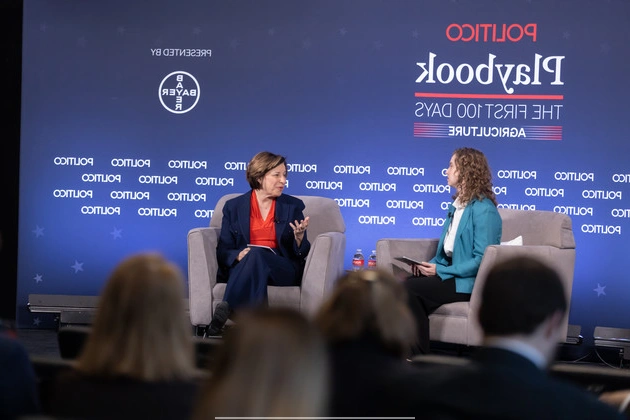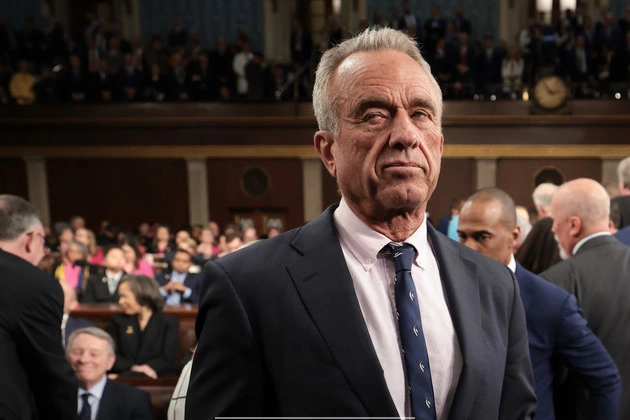
Senator Amy Klobuchar, the leading Democrat on the Senate Agriculture Committee, strongly criticized President Donald Trump’s tariffs, labeling them as ‘devastating’ for American farmers and producers.
During POLITICO Playbook’s First 100 Days breakfast series, Klobuchar emphasized the necessity for Trump to address trade issues within the framework of the U.S.-Mexico-Canada Agreement, rather than unilaterally asserting authority.
The Impact of Tariffs on U.S. Agriculture
Trump’s recent escalation of steel and aluminum tariffs has caused significant concern among U.S. farmers and producers, prompting fears of price hikes for essential inputs like seeds and fertilizers. Agricultural groups, including the Farm Bureau, have expressed apprehension over the potential repercussions of these tariffs.
Although some Republicans have advocated for exemptions, many on Capitol Hill have deferred to Trump’s trade negotiation strategies, despite the unease within their constituencies.
Klobuchar’s Stance on Tariffs and the USMCA
Klobuchar clarified her support for ‘targeted’ tariffs and her endorsement of the USMCA, which she referred to as a ‘crown jewel’ of Trump’s first term. However, she highlighted significant disparities between her approach and the current tariff plan implemented by the President.
Senator Tina Smith of Minnesota echoed Klobuchar’s sentiments, emphasizing the disruptive nature of the fluctuating tariffs on local producers, who are grappling with uncertainty and financial strain.
Smith recounted instances of constituents expressing a desire to abandon their agricultural pursuits due to the challenging market conditions exacerbated by the tariffs.
The Urgency of Trade Resolution
Both Klobuchar and Smith underscored the urgency of resolving trade disputes through diplomatic channels like the USMCA, emphasizing the need for stability and predictability in agricultural trade relations.
As the debate over tariffs and trade policies continues, the impact on American farmers and producers remains a focal point of contention, highlighting the complex interplay between economic interests and political decisions.















